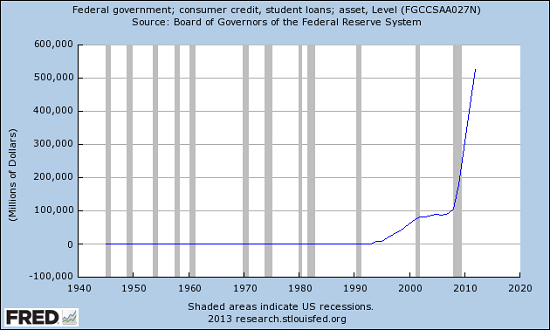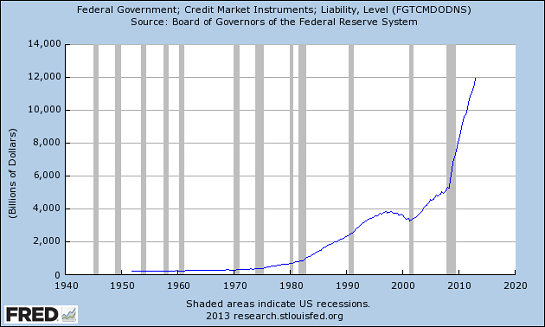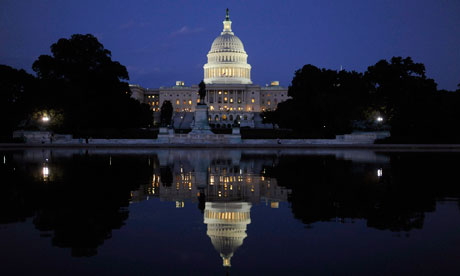Awareness of the implications of the Foreign Account Tax Compliance Act, also known as FATCA, is growing.
Passed by Congress in 2010 as part of the Hiring Incentives to
Restore Employment (HIRE) Act, this extraterritorial law has sparked
global fear, confusion, anger and controversy.
Now that
controversy has come home. There is growing domestic opposition to FATCA
implementation. U.S. lawmakers and banks are fighting reciprocal
information exchange promised to other nations like Mexico and Germany.
Yet another delay in implementation was announced recently by the U.S.
Treasury.
The road to FATCA began with a simple premise: Force foreign
banks to disclose income held by Americans in offshore tax havens. In
May of 2009, when President Barack Obama unveiled his proposal, he said,
“Taxation is a price of citizenship.”
Obama insisted people and companies trying
to avoid paying taxes through offshore accounts “are aided and abetted
by a broken tax system, written by well-connected lobbyists on behalf of
well-heeled interests and individuals.” He suggested “corporate
loopholes…make it perfectly legal for companies to avoid paying their
fair share.” The IRS “tax code…makes it all too easy for a number—a
small number of individuals and companies—to abuse overseas tax havens
to avoid paying any taxes at all.”
To provide new tools to help
U.S. catch both individual and corporate tax evaders overseas, Obama
proposed FATCA to “let the IRS know how much income Americans are
generating in overseas accounts by requiring banks overseas to provide
1099s for their American clients, just like Americans have to do for
their bank accounts here in this country.”
Is This Where President Obama and Congress Intended to Go? Today FATCA bears almost no resemblance to Obama’s initial goal of “commonsense measures” to simplify the U.S. tax system.

Lynne Swanson
The
proposal for foreign 1099’s on American offshore accounts of a “small
number of individuals and companies” in tax havens has been transformed
into a massive bureaucratic worldwide reporting system. FATCA demands
comprehensive data from all accounts held by millions of “U.S. persons”
living in countries that are clearly not tax havens, countries like
Canada, France, Sweden, New Zealand, China and Russia.
How FATCA Became Lost Failure to do a realistic assessment of the impact and risks: Congress never asked for an estimate of how much FATCA would cost to implement or a cost/benefit analysis.
For
money spent building the system, how much revenue will the U.S.
actually receive? Estimates range from $8 billion to $210 billion over
10 years, but no one is certain. There are simply no hard numbers from a
credible source.
Failure to identify all stakeholders:
FATCA was initially intended to be between foreign banks and the U.S.
government. But at every stage of implementation, new stakeholders kept
popping up: foreign and regional governments and their tax authorities,
the compliance industry, U.S. persons abroad and more.
As the
final system takes shape in 2013, some U.S. lawmakers became major
stakeholders, weighing in with demands, objections and calls to repeal
FATCA.
Failure to identify and involve all stakeholders has proven deadly to FATCA: Criticism grows with both legal and political challenges, which are slowing down implementation and making it even costlier.
Changing directions:
By 2011, it was apparent FATCA was not just targeting “a small number
of individuals and companies” hiding assets in overseas accounts.
Instead, it was capturing honest, responsible Americans living and
paying taxes in other countries.
In 2012, Senator Carl Levin,
D-Mich., whom Obama credits as one of the FATCA leaders, wrote to the
IRS with numerous demands, including that FATCA information be provided
“on request” to law enforcement and national security for money
laundering, drug trafficking, terrorism financing and other crimes and
“misconduct.”
Complexity: FATCA has rapidly
become a system weighed down by its own complexities. The Treasury
Department has written over 500 pages of new regulations.
They are
negotiating intergovernmental agreements, or IGAs, with nearly every
country in the world (160+). Some members of Congress question the
Treasury’s legal authority to do so. As IGAs are signed, changes are fed
back into the regulations, making this a nightmare for foreign
financial institutions trying to finish compliance projects.
In
2009, Obama announced 800 new IRS agents to run and maintain the system
as he envisioned it. How many more will be needed with a system many
times greater in magnitude and complexity, especially if the IRS must
gather and provide information to foreign governments?
Unintended consequences:
All around the globe, Americans living in other countries are in a rage
at the United States, resulting in rising renunciations of U.S.
citizenship. Some have already had their legal bank accounts in their
communities closed simply because they were born in United States. Some
have even had mortgages cancelled.
Banks worldwide are hostile to
spending billions to report to the IRS on long-term customers who are
legal residents of their countries.
Only nine countries have
signed an IGA. They did so with signed promises and expectations that
the U.S. would provide reciprocity. This is, at best, questionable.
Other countries continue to resist or may sign under coercion, creating
strained diplomatic relationships.
Lawsuits and constitutional
challenges are being planned and considered in many countries. Two
banking associations in the United States have filed lawsuits in federal
court over requirements for them to report income on non-resident
aliens to their home countries.
Some members of Congress from both
parties predict that reciprocity will result in the flight of capital
and investment from the U.S., the loss of American jobs, enormous costs
to American banks and “irreparable” harm to the U.S. economy.
One American bank has already reported losing $50 million in deposits.
The
President insisted FATCA was “commonsense” reform to “restore balance
and fairness in our tax code” and to “crack down on illegal tax evasion,
close loopholes and make it profitable for companies to create jobs in
United States.” Instead, it is a hugely expensive, highly invasive,
costly, complicated and controversial proposition at home and around the
world.
FATCA has traveled far off the map from its original
destination. Now no one—not the proponents or opponents of this law or
the lawmakers and bureaucrats around the world making policy or even the
average citizen cheering on the fight against tax evasion—can predict
what the FATCA landscape will be down the road.
FATCA appears headed for a catastrophic collision.
RecommendationsThe
President, Congress, the Treasury Department and the IRS need to
refocus on the original modest, laudable intent of FATCA to track down
Americans removing their assets from the U.S. in order to illegally
evade paying U.S. taxes.
Then they need to find improved ways to achieve that end.
“To
restore fairness and balance” in the U.S. tax code must include
“fairness and balance” for Americans living outside United States.
International
cooperation in combating tax evasion should include developing true
partnerships around the world that respect the laws, constitutions,
sovereignty and interests of other nations.
If leaders fail to act
quickly to restore global cooperation and respect, FATCA could
represent one of the riskiest projects the U.S. has ever tried to push
both at home and internationally.
Victoria Ferauge is an
information technology professional. Originally from Seattle, she lived
in Japan and has lived in France with her French husband and family for
nearly 20 years. Lynne Swanson is a retired human resource professional.
Born and raised in Pennsylvania, she has been a Canadian citizen for 40
years.
4 Comments
I
would only add to this, that while the FATCA Compliance Complex (FCC) is
still trying to figure out the first 544 pages of regs complexity and
the 9 currently signed IGAs (with Treasury planning 80 or so)....... now
comes the corrections, additions, clarifications just issued yesterday
in the Federal Register.
I assume Michael Cohen will soon have an article about that so I will leave out the link.
This
would be absolutely maddening for an FATCA administrator,I would
imagine. I really feel sorry for the FFI's trying to keep up with the
layering of complexity. For the FCC,the FATCA Compliance Complex, this
is the gift that keeps on giving. More billable hours and consulting
fees will result.
Now, add to this, the G-20 declaration of
support for the OECD's Global auto tax data exchange proposal, or a
Global GATCA, and the complexity is just starting. Will they just
accept FATCA and be done with it, or will they have their own ideas of
what it should look like. I am betting on the latter.
Will the
USA just accept their GATCA as a replacement for FATCA, or will it be an
add-on? I can't imagine the U.S. accepting anything less their their
program, as they are pretty hubristic and unilateral about our
requirements.
What happens with U.S. Citizen based taxation (CBT)
really runs head on with the rest of the worlds' Residency based
system, (RBT)? Will the OECD GATCA allow a carve out for the U.S. to
continue to assert its dominion over its citizen's residing in their
countries, or will they insist on a reciprocal Citizen reporting
mechanism just like the USA?
Will USFIs really just accept a domestic DATCA as the GATCA implies that will have to happen if it is truly to be global?
This
GATCA is going to be a nightmare with all kinds of repercussions for
the world's economy. Who knows what the final FATCA/DATCA/GACTA
landscape will be, but the complexity has just started.











